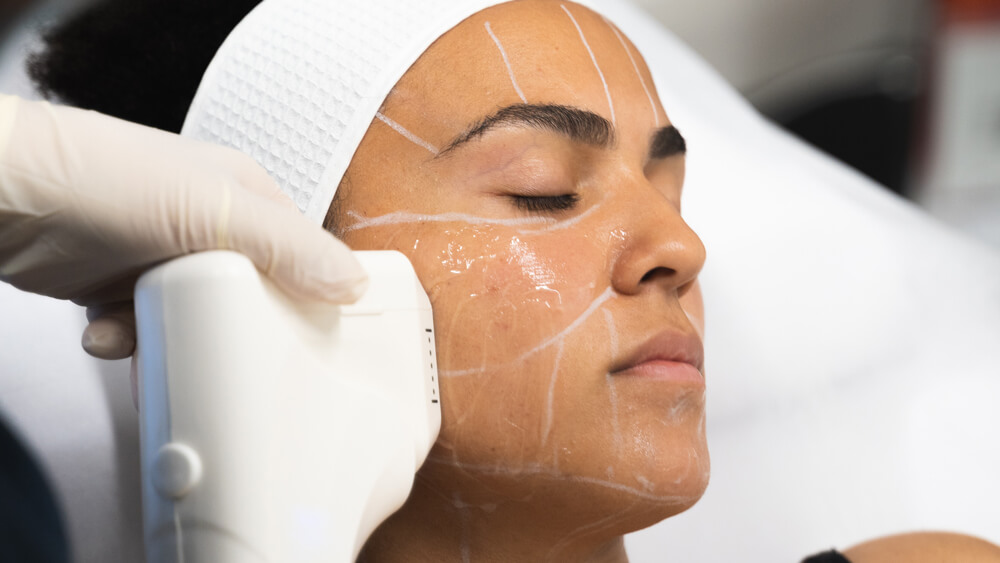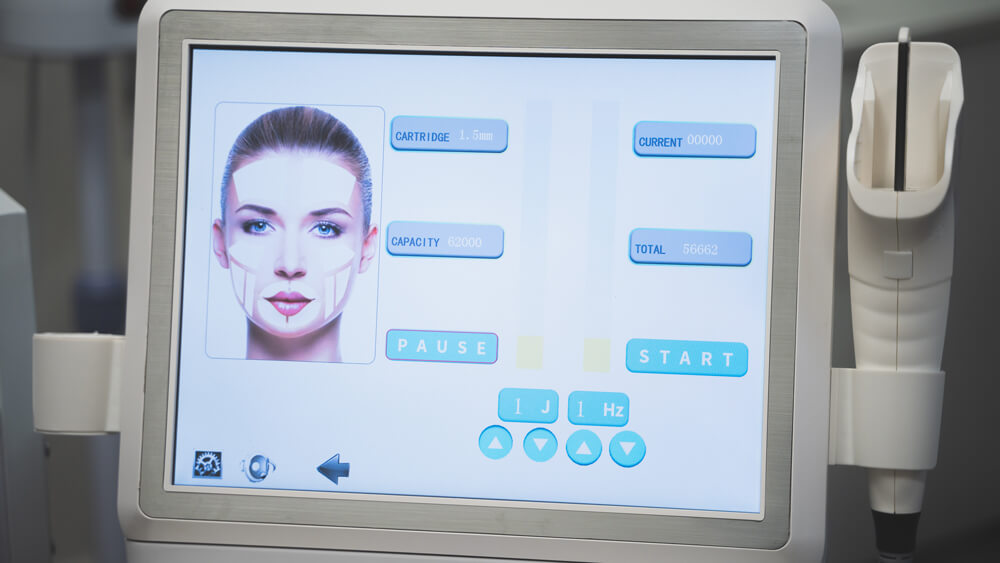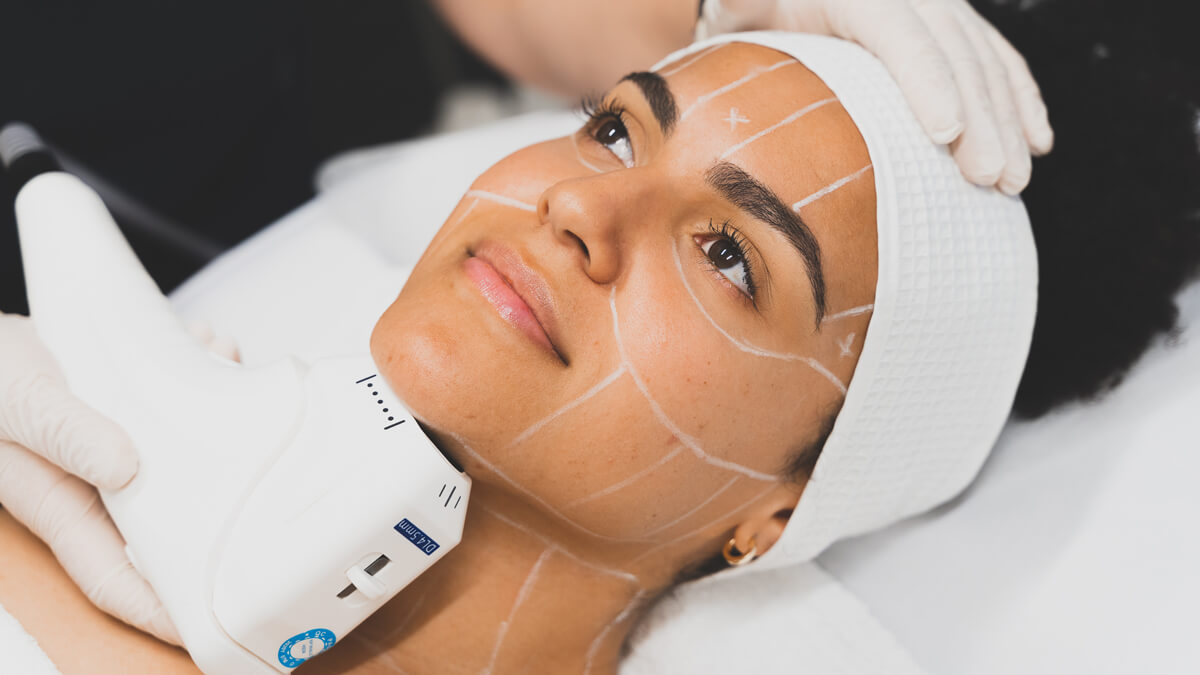High-Intensity Focused Ultrasound (HIFU) is a solution for skin tightening and rejuvenation which is getting popular as it is an easy and non-invasive method. HIFU with less or no downtime is a method that offers anti-aging results and it is a great alternative for surgical treatments. However, is HIFU safe and has few or no side effects? In this article, we will take a deeper look at this skin rejuvenation treatment to investigate its possible risks and side effects before going under this treatment.
How does HIFU work?
HIFU treatment is done through ultrasound energy. The ultrasound energy is sent into the deep layers of skin and it stimulates the process of collagen production which is essential for skin firmness and elasticity. By undergoing this skin rejuvenation treatment, the skin will get smoother and tighter over time. HIFU is a safe method for medical purposes and it is widely used in treating diseases such as cancer, but is it still safe for beauty purposes as well?
Is HIFU safe?
HIFU is generally safe if it is done by an experienced and licensed expert. As has been already mentioned, HIFU is a non-surgical treatment that does not need anesthesia, surgery, or incisions. Hence, there is no risk of aftercare treatment which is usual in surgical processes such as infection or long recovery time. Furthermore, the ultrasound energy in this treatment only targets the specific areas that are going to be treated and there is no risk for the surrounding area of the skin.
HIFU is approved by the FDA as a face-lifting and wrinkle-reduction solution. This skin rejuvenation treatment is fully documented in clinical studies. Although HIFU skin treatment is confirmed as a safe skin treatment, it is better to know about its possible side effects which may happen to some patients.

Common side effects of HIFU
However, the HIFU treatment is known for its little to no downtime, there are still some possible side effects that may appear after the treatment.
- Redness: After the HIFU treatment, you may experience some redness on your skin, but it will disappear within some hours.
- Swelling: There may be some swelling in the treated areas especially around the cheek or jawline after the HIFU treatment. They will also get better in a few days.
- Tingling or sensitivity: You may experience the tingling sensation or feeling of sensitivity in the treated area by the HIFU. These feelings usually disappear in a few weeks after the treatment.
- Bruising: If you have sensitive skin, it is possible to see some bruising on the treated area after the HIFU procedure which is treated soon after the treatment.
- Numbness: However it is rare to happen, but some patients may experience numbness in some treated areas after the HIFU treatment. The feeling of losing sensation will disappear within some weeks after the treatment.
Are there any serious risks in HIFU treatment?
Although the serious risks in HIFU treatment are infrequent, it is better to know the potentially serious risks. Most serious side effects after HIFU treatment are related to how the HIFU provider is professional and has enough experience in treating skin issues correctly considering the patients’ skin conditions. Here are possible severe risks after the HIFU skin treatment:
- Skin burns: If the HIFU treatment is done incorrectly, it can cause skin burns in some rare cases. That is why the whole procedure must be done by a professional.
- Skin irregularities: However it is highly uncommon, if the ultrasound energy penetrates too deeply into the skin, it may cause some irregularities in skin texture and fat reduction.

Who should avoid HIFU?
While HIFU is highly safe, the skin treatment is forbidden for patients with the conditions below:
- You are pregnant or breastfeeding.
- You have open wounds.
- You have infections in the areas that are going to be treated.
- You have severe acne (especially cystic ones).
- You have metal prostheses and implants in the target areas.
In addition to the cases above, if you have very sagging skin, the HIFU treatment may not be a good solution. In this case, you need to consult with your skin therapy professional to suggest the best skin rejuvenation treatment method.
How to minimize the risks of HIFU treatment?
To minimize the possible risks of the HIFU treatment that have been already explained, you can follow the instructions below:
- Consult with a qualified and experienced skin professional: Look for a professional who is licensed and experienced in performing HIFU treatment. Try to find the ones with more positive ratings and reviews.
- Consultation: After finding your HIFU professional, arrange a skin treatment consultation for primary skin assessments before going for the treatment directly.
- Follow HIFU aftercare instructions: After the HIFU treatment, it is vital to follow the post-care instructions which are provided by your skin therapist. Additionally, avoid using severe skin care products and sun exposure within the first 48 hours after the treatment.
Conclusion
HIFU treatment is a skin rejuvenation and face-lifting method that is highly safe if it is performed by an experienced and licensed skin therapist. This treatment may have some side effects such as redness, swelling, numbing sensation, or feeling of tenderness, but they will heal within some hours or some weeks at maximum after the HIFU treatment. If you are thinking about HIFU treatment to get rid of your skin wrinkles or body fat, search for a professional skincare clinic where there are skin experts to provide you with the best skin consultation before deciding about the way to rejuvenate your skin.
